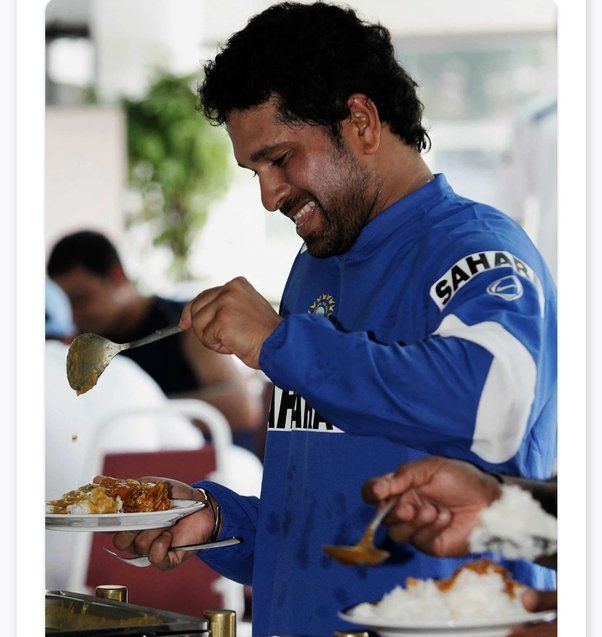Importance of Nutrition for Cricketers

Nutrition plays a critical role in a player’s physical and mental improvement, it should not be neglected even if you are just starting out to play cricket or are playing at an elite level. Having a balanced nutrition plan with the required physical and skill development can be your competitive edge
Cricket is a sport that requires endurance, strength, agility, and focus, all of which are influenced by nutrition.
Here are a few reasons why nutrition is essential in cricket:
- Fuel for the Body: A cricket match can last for several hours or even days, and players need to have the energy to sustain their performance throughout the game. Nutrition provides the fuel for the body to perform at its best.
- Muscle Repair and Recovery: Cricket players need to have strong muscles and be able to repair them quickly. Proper nutrition helps to repair and recover muscles after intense physical activity, allowing players to be ready for their next game.
- Mental Focus: Nutrition also affects mental focus and concentration. Eating a healthy diet that includes brain-boosting foods such as fruits, vegetables, nuts, and seeds can help players stay alert and focused during the game.
- Injury Prevention: A well-balanced diet that includes adequate amounts of vitamins, minerals, and protein can help prevent injuries and aid in injury recovery.
There is no one-size-fits-all diet for cricket players, as individual nutritional needs may vary based on factors such as age, gender, body composition, and activity level. However, there are some general guidelines that cricket players can follow to ensure they are fueling their bodies properly:
- Carbohydrates: Carbohydrates provide energy to the body, which is especially important for cricket players who need to perform for extended periods. Whole-grain bread, rice, pasta, and fruits and vegetables are all excellent sources of carbohydrates.
- Protein: Protein is essential for muscle repair and growth. Good sources of protein include lean meats, poultry, fish, eggs, dairy products, legumes, and nuts.
- Healthy fats: Healthy fats, such as those found in avocados, nuts, seeds, and fatty fish, are important for maintaining brain function, regulating hormones, and reducing inflammation.
- Hydration: Staying hydrated is crucial for cricket players, as dehydration can lead to decreased performance and an increased risk of injury. Drinking water before, during, and after a game or practice session is essential.
- Pre-Game Meals: A cricket player should aim to eat a well-balanced meal 3-4 hours before a game. This meal should include complex carbohydrates, lean protein, and healthy fats. Avoid foods that are high in sugar, salt, or fat, as they can lead to dehydration, sluggishness, or indigestion.
- Post-Game Meals: After a game, cricket players should consume a meal that includes both carbohydrates and protein. This combination can help to replenish energy stores and repair muscles. A good post-game meal could be a whole-grain sandwich with lean protein (such as turkey or chicken), along with some fruit and water.
- Timing and frequency of meals: Amateur cricketers should aim to eat balanced meals that include carbohydrates, proteins, and fats, and to time their meals appropriately before and after training sessions and matches. Eating smaller, more frequent meals can help maintain energy levels throughout the day.
It is essential for cricket players to work with a qualified sports nutritionist to develop an individualized nutrition plan that meets their unique needs and goals.
Some popular sports nutritionists in India include:
- Ryan Fernando - He is a renowned sports nutritionist and the founder of the Qua Nutrition Clinics in Bangalore and Mumbai.
- Kinita Kadakia Patel - She is a well-known sports nutritionist in Mumbai and the founder of Mealpyramid, a nutrition and wellness consultancy.
- Dr. Aashish Contractor - He is a sports medicine expert and the head of the Department of Rehabilitation and Sports Medicine at the Sir H.N. Reliance Foundation Hospital and Research Centre in Mumbai.
- Suman Agarwal - She is a leading nutritionist in Delhi and the founder of Selfcare India, a nutrition and wellness consultancy.
- Mehar Rajput - She is a sports nutritionist in Delhi and the founder of FITPASS, a fitness app that provides personalized nutrition and fitness guidance.
These are just a few examples of qualified sports nutritionists in India, and there are many others across the country. When choosing a sports nutritionist, it's important to do your research and find someone who is qualified, experienced, and has a track record of working with athletes.

